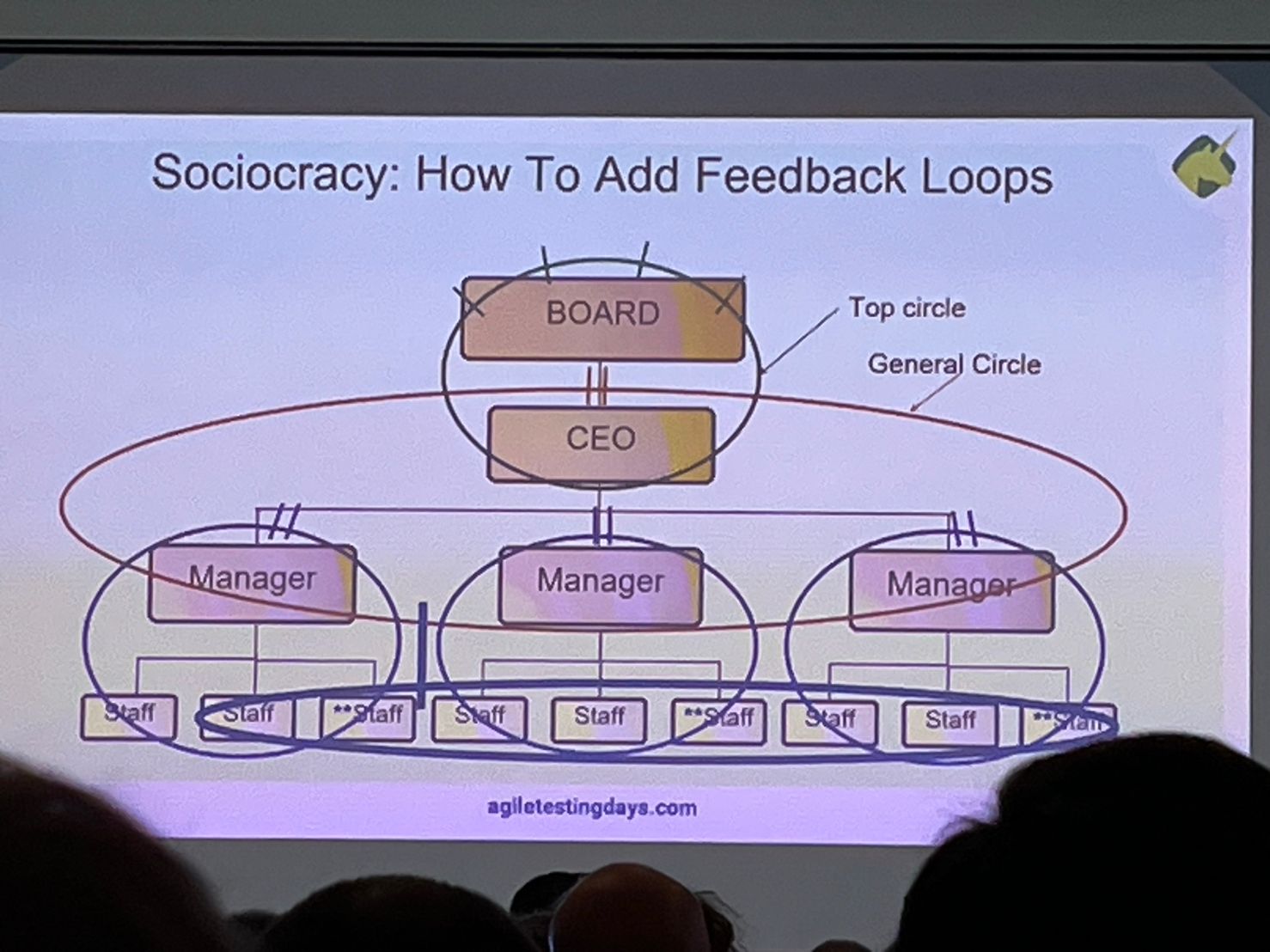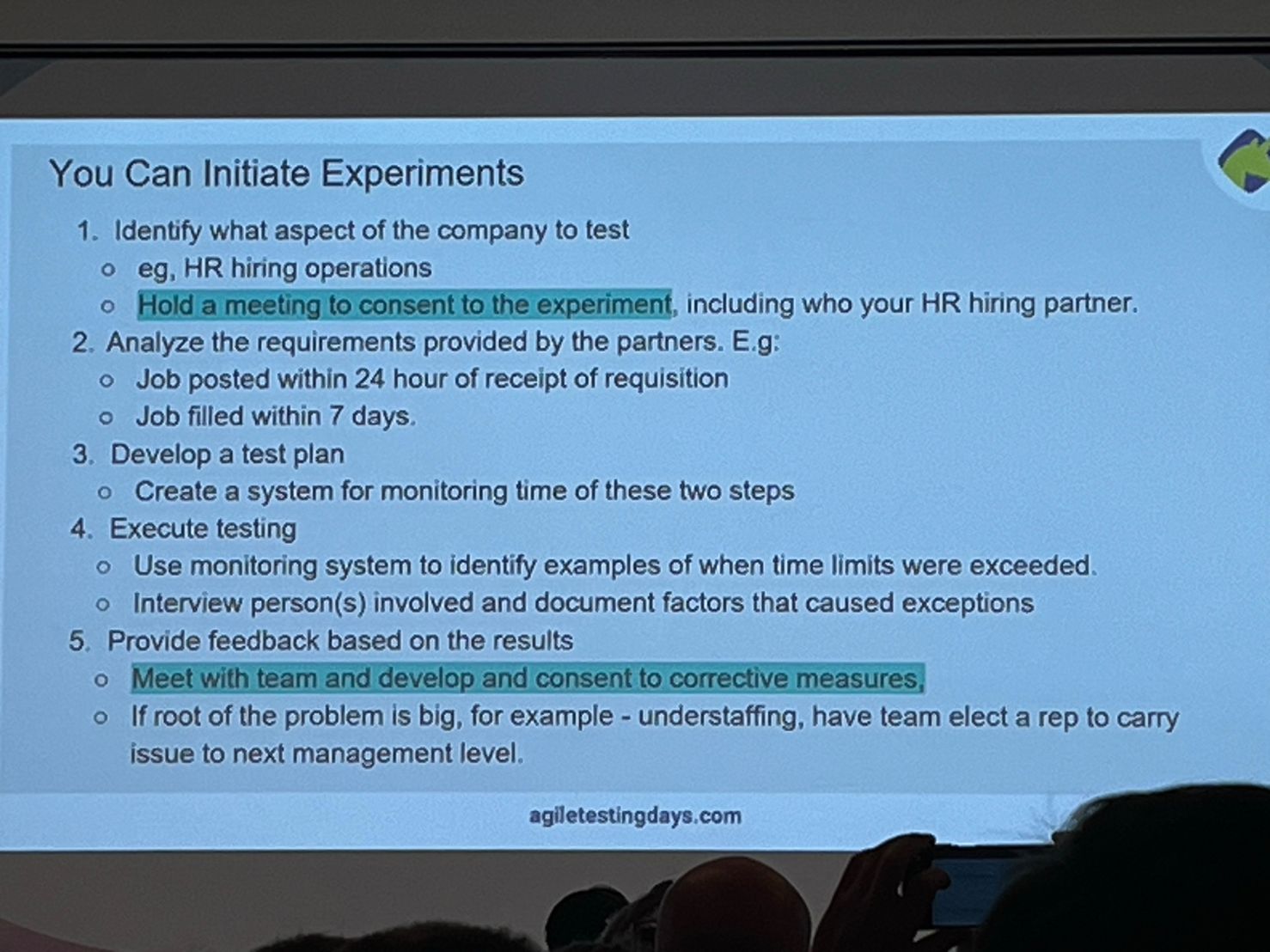Everyone at the Agile Testing Days Conference has heard the term “debugging.” You may also know the story of the first computer bug. In 1947, early in her career with the US Navy, Dr. Grace Hopper was helping prepare a Mark I computer to show to a visiting Navy Admiral. Something was wrong. As a good Software Tester she finally isolated the problem to mechanical relay #70. (Back then, mechanical relays opening and shutting served as 1s and 0s.) The arms of Relay #70 had smashed a moth. Dr. Hopper scraped off the moth and taped it in her lab journal: the world’s first computer bug!
What message would US Navy Rear Admiral Hopper have for us, her progeny, Agile Testers? First, as the inventor of the world’s first compiler and inventor of COBOL, she would be pleased with the vast array of testing methods and tools that have been developed. Second, she might ask, “Why are you using all those testing strategies just with software?” Why aren’t you using them to test, validate or improve the container of the software, namely, the corporate structure and management processes that surround and serve as a container for the software? So, why not also try to debug management?
Let’s explore the idea!
As a first step in the adventure, let’s look at the organizational governance system called “sociocracy.” There are many methods for creating feedback known to the originators of sociocracy such as circles, double linking and consent decision making. They create containers for probing complexity and testing at all levels of the organization to identify and pinpoint problems and create solutions.
The concluding question is: how can you lead your organization to probe its activities? What is at least one practical step you could try immediately, learn from, and try some more? For example, how could you measure the effectiveness of one of your organization’s policies such as rules around travel expenses, how performance reviews are handled, requirements to set annual budgets, coordination of cross-functional teams, and so on. Many organizations are desperate to measure and improve such complex matters; yet, they fail to see that the software testing folks right under their noses have such measurement skills. The software testing folks don’t have to wait to be noticed. They can take the initiative
Who knows Grace Hopper?
Grace Hopper is the founder of your profession.
Sept 9, 1947 first documentation of a bug 🐞 (a real life moth causing the problem)
What do we mean with debugging management?
Agile Testing -> feedback loops
Sociocracy = rule by the people that have a connection / are associated (vs democracy: rule by the vote)
Typical corporate power structure: is linear, top down, it is supposed to steer an org
A power engineer said: I would never design a power structure that way. It had no feedback loops!
The idea of blind spots is important.
Blind spot: the mind imagines something is there but that isn’t there
Most people read Agile Testing as Agile Software Testing
The way to introduce feedback in a linear system is to break down the hierarchy and make decisions by consent
-> retrospectives
vs autocratic decision: line authority
Consent = good enough for now, safe enough to try, not consensus, not majority vote!
It helps bringing everyone’s ideas together
Managers might feel threatened. They feel they are in charge. That’s the bug.
-> the need for two people at that place
Add feedback loops: introduce circles all the way up the hierarchy

This system can bring leadership from the bottom.
Personal note: this reminds me of the book Maverick about the Brazilian company Semco.
This is a system that can quickly lead to innovative stuff
Circle Meetings: are feedback (testing) loops similar to retrospectives?
Initiate a debugging experiment
- identify which part of the org to test example: test the hiring process
- hold a meeting to consent on the experiment
- …
once the first part has been tested, identify another part and start over again

Question: Can this work for government?
The state of Carolina does that.
they’ve set up close to 300.000 neighbours
neighbours sent representatives to the next level and so on
This way of working is very effective at for instance stopping corruption.
If we would work this way, we would not have an ecology crisis
-> Ralph Stacey’s Theory of Complexity